R.C. Sproul's Blog, page 569
September 16, 2011
$5 Friday: Calvinism, Hymns & Apologetics
This week find $5 Friday resources on calvinism, hymns, apologetics, redemption, and the character of God. Sale starts Friday at 8 a.m. and ends Saturday at 8 a.m. EST.

September 15, 2011
Get Dr. Sproul's Series on the Atonement for a Donation of Any Amount
The world needs the good news of the Gospel. But understanding the Gospel is impossible without understanding the cross of Christ — the event that turned the bad news of sin into the good news of salvation. In The Cross of Christ, Dr. Sproul highlights humanity’s great need for salvation and communicates the way the cross fulfills that need.
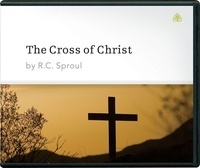 This week you can get this CD series for a donation of any amount. Messages include:
This week you can get this CD series for a donation of any amount. Messages include:
The Need for an Atonement
The Drama of Redemption
Christ Our Ransom
Justification by Faith
Blessing or Curse?
Securing Our Faith
Offer valid through September 20th.
Donate Now
.

An Interview with Paul David Tripp
Paul David Tripp is president of Paul Tripp Ministries, which has as its mission statement, “Connecting the transforming power of Jesus Christ to everyday life.” In addition to being a gifted communicator and sought-after conference speaker, Dr. Tripp is professor of pastoral life and care at Redeemer Seminary in Dallas, Texas; the executive director of the Center for Pastoral Life and Care in Fort Worth, Texas; and has taught at respected institutions worldwide. As an author, Paul has written eleven books on Christian living, including Instruments in the Redeemer’s Hands: People in Need of Change Helping People in Need of Change.
This month's issue of Tabletalk featured an interview with Dr. Tripp where he was asked questions like these:
Tell us a little about Paul Tripp Ministries and your call to a ministry of counseling.
Is there anything Christians can learn from secular approaches to counseling, or should Christians avoid them altogether?
Most Christians express a desire to change, to become more Christlike, but often stumble and fall short. some even give up in despair. how is the change we desire to be achieved?
Read his answers to these questions and more in Living in Light of the Gospel: An Interview with Paul David Tripp.

September 14, 2011
Where Is Your Hope?
Marva Dawn contributed an article to this month's issue of Tabletalk, and she begins it in this way:
The story is told that a financially comfortable North American went to visit a mission church that was located in the village dump in a city in Africa. Wondering, he shadowed the pastor for much of the day until he finally burst out and said, “Where is your hope?” He could find no tools with which the pastor could work, no materials with which he could build, no food that he could pass on to the poverty-stricken people. “Where is your hope?”
To the man’s utter astonishment, the local pastor responded with an enormous smile and brilliantly bright eyes. “My hope is Jesus Christ,” he confidently asserted, and he went on the rest of the day showing how that could be the case.
Like the visitor, most of us living in North America can’t imagine how the African pastor could find hope in the terrible situation in which he worked.
It is little wonder, then, that Dawn is asking, Where Is Your Hope?

September 13, 2011
2011 Study Cruise Update - II
"…You shall be witnesses to me in Jerusalem, and in all Judea and Samaria, and to the end of the earth." (Acts 1:8b)
As the 2011 Study Cruise comes to a close, we are thankful for the safety of our more than 420 conference attendees. For four days, we were able to explore the Holy Land and experience the sacred space where our redemption was accomplished. We visited Caesarea where Peter visited Cornelius, the Mount of Beatitudes where it is believed Jesus gave the Sermon on the Mount, Peter's house in Capernaum, the Dead Sea, the Jordan River, and enjoyed a boat ride on the Sea of Galilee. Once inside Jerusalem, we started our tour with a visit to the Mount of Olives and continued on to the Christian Quarter to explore the Pool of Bethesda, the Garden of Gethsemane, the Via Dolorsoa, and the Western Wall.
Following Israel, we explored the recovered ruins of Ephesus, the city in which Paul founded a church, and listened as Dr. Sproul read from the book of Ephesians in the Basilica of St. John in Selcuk. After spending a relaxing day in Mykonos, Greece, we now head back to Italy where our cruise and tour of the Cradle of Christianity will conclude.
We are thankful for the insightful teaching sessions from Dr. Sproul and Dr. Godfrey and for the time we have been able to spend with our conference guests. We pray that this trip has helped enrich our understanding of Scripture.
You can explore these sites with us by viewing photos of our trip here. Check back in a few days as more photos are added.
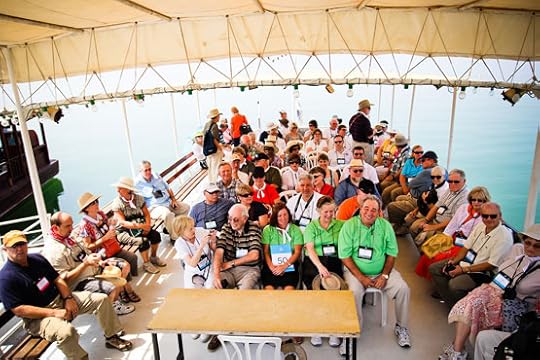

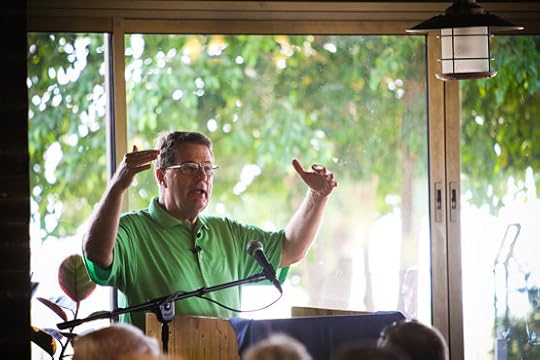
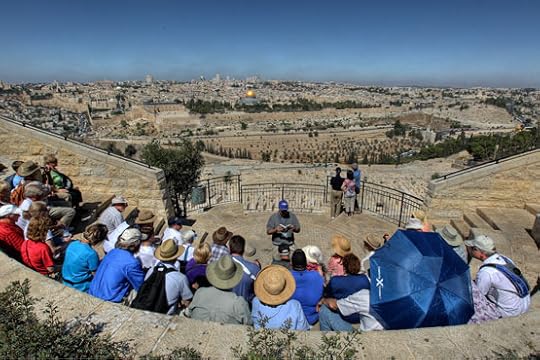

The Big Four-O

The New York Times ran a story this spring that profiled a strange phenomenon. Rather than institution building, it seems that some non-profits, finding that their project-based work is nearing completion, have chosen to turn off the lights gracefully. One charity was working to raise awareness of malaria and help provide bed netting in malaria zones. Within a few years the danger of this mosquito-borne infectious disease is likely to subside. Indeed, this non-profit organization is celebrating a “Mission Accomplished.”
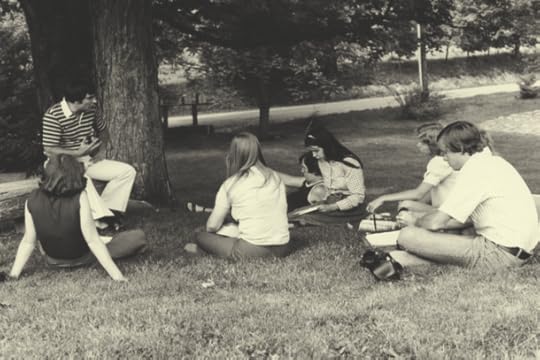 That prompted me to think about what “Mission Accomplished” would look like for Ligonier Ministries. We hit the “big four-o” this year. Are we entering a mid-life crisis? What’s the mission? Is it relevant? How would we define success? How would we know if our work was nearing completion?
That prompted me to think about what “Mission Accomplished” would look like for Ligonier Ministries. We hit the “big four-o” this year. Are we entering a mid-life crisis? What’s the mission? Is it relevant? How would we define success? How would we know if our work was nearing completion?
Put another way, does Ligonier exist to hold conferences? Is our goal to print Bibles, books, and magazines? Maybe we exist to build buildings and start a new educational institution? Or maybe our raison d’être—our reason to be—is to air radio and TV broadcasts?
No. Our mission is the message, not the medium. Ligonier Ministries is built on one profound proposition: to help Christians grow in Christ. Discipleship is the goal and Christlikeness is “Mission Accomplished.” We have been at this mission forty years, a long time by non-profit standards. However, our mission is not novel.
Students of the Bible will likely find this mission sounding familiar, for it is derived from the Great Commission as given to the church by Jesus Himself. Go. Disciple. Teach. Observe. Four powerful directives from Matthew 28:19–20 that command our attention and set our agenda. This mission of stimulating Christians to grow in Christ is great in scope and eternally significant. Therefore we aim to faithfully teach the word of Christ so that His people abide in Him and grow fruitful. Dr. Sproul explains that “it is the teaching of Christ that makes His disciples blossom and bloom, producing fruit in their season."
Dr. Sproul has often referred to himself as a battlefield theologian — fighting for the truth of God’s Word amidst rampant relativism. Ligonier Ministries has therefore always been engaged in a two-front war: fighting growing secularism in the culture and liberalism in the church. The church strays from our mission when we resolve to “do more for God.” Instead, our call is to “repent and believe God more.” Jesus says that we are His disciples if we abide in His Word: “Then you are truly disciples of Mine” (John 8:31–32).
We come alongside the church to proclaim the whole counsel of our holy, triune God to as many people as possible. Our voice joins with the historical band of brothers and sisters throughout the ages who have been called out of darkness into light.
Ligonier Ministries stands for the truth of God’s Word by equipping God’s people to build God’s kingdom. Our mission is accomplished whenever the preacher delivers the gospel, not good advice; when citizens love their neighbor as themselves; when a husband loves his wife as Christ loved the church; when a wife submits to her husband as unto the Lord; when children joyfully honor their parents. We seek enduring reformation according to the Bible, one that impacts every heart in every corner of the world.
Chris Larson is executive vice president of Ligonier Ministries. He oversees all ministry outreach operations.

September 12, 2011
Today Only: Get Tabletalk Magazine for a Donation of Any Amount
 Today only, you can get a one-year subscription to Tabletalk Magazine for a donation of any amount. Call our resource consultants at 800-435-4343 to take advantage of this special one-day offer.
Today only, you can get a one-year subscription to Tabletalk Magazine for a donation of any amount. Call our resource consultants at 800-435-4343 to take advantage of this special one-day offer.
Tabletalk’s daily Bible studies offer structure for your devotional life. Delivering biblical scholarship in down-to-earth writing, Tabletalk helps you understand and apply Scripture. Each issue also contains challenging, stimulating articles on a wide variety of issues related to theology, Christian living, worldview and church history, written by eminently trustworthy authors—leaders like Sinclair Ferguson, John MacArthur, Albert Mohler, John Piper, R.C. Sproul, and Derek Thomas.
Call 800-435-4343 to receive this special one-day offer. (Domestic addresses only.)

Is Faith a Work?
The Reformation was born out of the biblical conviction that a man is deemed just in the sight of God, forgiven, adopted, not on the basis of his own goodness, but on the basis of the goodness of Christ imputed to him. Not everyone, however, is blessed with this imputation, but only those who trust in that provision, and in that provision alone. The debate at that time, and to this day, has been characterized as faith versus works. Though Rome would not affirm, and indeed rightly condemns crass Pelagianism, the notion that we can earn God’s favor outside His grace, she does see a vital role for our personal righteousness, even while affirming that our righteousness is the result of grace at work in us, with which we must cooperate. In framing the debate as works versus faith, however, some miss the very nature of faith.
One way to err on faith is in fact to turn it into a “work.” In this error we see “faith” as a substitute for our obedience. This view suggests that in the Garden God required total and complete obedience from us in order for us to be at peace with Him. When that failed, God graciously lowered His standard. Now all that He requires of us is that we trust in Him. The trouble with this view is that it wrongly makes faith the ground of our salvation. We stand before the throne of God and He asks why He should allow us into His kingdom. We boldly reply, “Because of my faith.” God then answers, “Faith? I love faith! People with faith, that’s just the kind of people I want to have around. By all means, come on in.” This error in the end is faith in faith, which faith will surely not save. It makes the cross gratuitous, which is blasphemy.
A second error turns faith into a work, and therefore rejects it as vital to our salvation. This view rightly recognizes that it is ultimately the finished work of Christ alone that saves. It rightly affirms that a man is justified because his sins were punished at Calvary, and the obedience of Christ is his. This view rightly affirms solus Christus, by Christ alone. In order, however, to fence off the first error, to be certain we don’t look at our faith as meritorious, it denudes faith of its true nature, turning it into bare assent. This view defines saving faith as agreeing to the truthfulness of the gospel message. This error suffers from two key problems. First, in diminishing the nature of saving faith to bare assent it leaves room even for, in principle, the demons. James says even the demons believe, and shudder (2:19). That is, they know God exists, and hate what they know. It is possible to know something and hate what you know. You can know, you can believe, as the devil himself knows and believes, that Jesus died for sinners, and still not have faith.
The second error here is that it doesn’t solve the problem. If we want to denude faith to be certain it doesn’t turn into a work, how does assent not become a work? Just as with true saving faith I am the one believing, trusting, resting, so even if it is mere assent I am the one assenting. In short, if faith is a work, why isn’t assent a work?
We avoid both problems when we embrace the wisdom of our fathers, the Westminister Divines. In their Shorter Catechism they ask, “What is faith in Jesus Christ?” and answer, “Faith in Jesus Christ is a saving grace, whereby we receive and rest upon Him alone for salvation as He is offered to us in the gospel” (question 86). Faith is not a work on two counts. First, it is a gift from God. It is not just received by grace, but is a grace. Faith is something God gives to us. On our own it is not possible, for we are dead in our trespasses and sins. And note that our faith has a specific object- as He is offered to us in the gospel.”
Second, faith, by its nature, is passive. We rest; we do not work. We receive; we do not earn. There is more to resting than mere assent, but there is not more work. Indeed there is no work at all, just resting and receiving the very ground of our salvation- the work of Christ for us.
Rest. Receive. And rejoice.

September 11, 2011
Twitter Highlights (9/11/11)
Here are some highlights from the Ligonier Twitter feed that today featured updates from the special September edition of Tabletalk magazine, 9/11 Ten Years Later.

Ligonier God was in the precise place on #Sept11 that He was on the day before & the day after. He was on His throne... -Sproul http://bit.ly/rlvQKx

Ligonier The historic evil of that sad day ten years ago is a symptom of the historic evil of the day of the fall of man. -@BurkParsons #Sept11

Ligonier The problem, rightly understood, w/ Muslim extremists isn’t that they kill us. The problem is they go to hell when they die. -@RCSproulJr

Ligonier One thing is clear: while Americans universally want God’s favor, as a whole, they do not want God. -@JohnMacArthur http://bit.ly/rlvQKx

Ligonier #Sept11 left a smoldering pile of dusty rubble, but the gospel...has overcome the terror in the lives of many New Yorkers. -@EdStetzer

Ligonier In Islam, it is still a virtue to slay an infidel...But in God’s sight, it is still a virtue to love our enemies... -R.C. Sproul

Ligonier My fear is that we haven't learned very much from #Sept11. -R.C. Sproul http://bit.ly/rlvQKx
You can also find our various ministries on Facebook:
Ligonier Ministries | Ligonier Academy | Reformation Bible College
Reformation Trust | Tabletalk Magazine

Ten Years Later by R.C. Sproul
A full decade has passed since America suffered the tragedy of 9/11. Ten years ago, I repeatedly heard the question raised: “Where was God in all of this? Where was God on 9/11 when the planes crashed into the twin towers in New York, the Pentagon in Washington, D.C., and a field near Shanksville, Pennsylvania?” My answer then was the same as it is now: God was in the precise place on 9/11 that He was on the day before and the day after. He was on His throne then and continues to be on His throne now because He is the Lord God omnipotent who reigns. He reigns day in and day out in consistent manifestation of His immutable sovereignty. God is immutable, unchanging, even though people and cultures continually change.
When we look at the casualties on 9/11, we see that they were light compared with the casualties suffered in bloody battles during previous times of war. They were light compared to the casualties of Antietam and Gettysburg. They were light compared to the casualties of Hiroshima and the Battle of the Bulge. The victims were few compared to those who were slaughtered in the Holocaust and in the purges under Joseph Stalin in Russia.
But the emotional scars have been enormous in our culture.
Keep Reading "10 Years Later."

R.C. Sproul's Blog
- R.C. Sproul's profile
- 1969 followers




